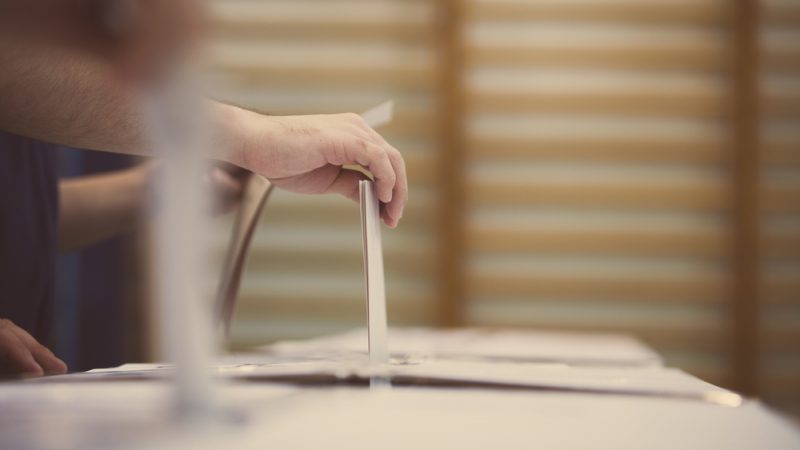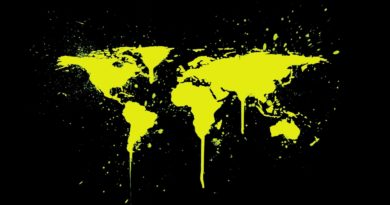Domestic ‘disinfluencers’ dominate Italy’s electoral disinformation – EURACTIV.com

Disinformation ahead of Italy’s snap parliamentary election on 25 September is mostly spread by domestic actors with a self-interested agenda. Along with disinformation, independent fact-checkers have also questioned the feasibility of most electoral programmes.
Read the original Italian article here.
Disinformation channels
Researchers have worked to identify how disinformation spreads in Italy.
In a recent joint effort between Rome’s LUISS university, Michigan University and the Harvard Kennedy School Misinformation Review, findings on the matter were gathered in a study called “Disinformation in Italy: Where to find it and how to fight it”, which was funded by Italy’s foreign and international cooperation ministry.
According to the yet unpublished study, parts of which were seen by EURACTIV, disinformation in Italy spreads predominantly on Telegram and Facebook, followed by TikTok and Twitter. For those spreading it, the report coined the term ‘disinfluencer’, as they use disinformation to become popular.
While these disinfluencers are mostly Italian, the origin of the disinformation largely depends on the topics. On the war in Ukraine and COVID, the sources seem to be foreign, whereas for issues such as women in politics, the origin is mostly domestic.
“By monitoring the communication channels of the anti-vax community, we witnessed a progressive shift of attention from pandemic-related topics to war in Ukraine-related news,” said Michelangelo Gennaro, the assistant researcher at LUISS’s Data Lab that took part in the study.
“This has occurred mainly on the more general anti-vax channels, while the specialised ones have maintained a more constant focus on the pandemic,” he added.
Fake news, mainly on Ukraine and COVID-19
However, some political parties also rely on disinformation, particularly regarding the pandemic and the war in Ukraine, to sway voters.
For example, a leading candidate of the Eurosceptic Italexit party is Doctor Giovanni Frajese. Suspended from the national medical association, Frajese has repeatedly stated that the COVID-19 vaccines in fact promote the spreading of the virus.
Though Italy’s Superior Health Institute has dismissed this theory, some newspapers and politicians from other parties, like Senator Lucio Malan from the Brothers of Italy, have contributed to spreading the theory.
Russia’s war in Ukraine and its impact on the economy has also infiltrated political discourse, with some parties saying the rise in prices should not be blamed on Russian President Vladimir Putin but on the EU’s Russia sanctions and arms packages sent to Ukraine.
“In this election campaign, there has been an attempt to ‘catastrophise’ the rise in gas prices, giving the perception that the sanctions are ineffective for Russia and destructive for Italy,” a source from the Italian Digital Media Observatory who preferred to remain anonymous told EURACTIV.
Matteo Salvini, leader of the right-wing Lega, has opposed the sanctions against Moscow, stressing that it would be better to protect Italians and Europeans than to harm the Russians.
In 2018, a close collaborator of Salvini, Gianluca Savoini, met with representatives of the Russian government to discuss funding in favour of the Italian party, as later revealed by L’Espresso.
Whether Lega received more Russian money following the outbreak of the war in Ukraine is a heated topic for debate during the election campaign, but no evidence has surfaced in this regard.
“We need money from Brussels, which evidently miscalculated when it asked for sanctions. We risk leaving millions of Italians in the dark and cold,” Salvini told the Ambrosetti Forum in Cernobbio on 6 September, adding that “the Europe that imposes sanctions is the same Europe that has a duty to help Italians pay their bills”.
Programmes’ fact-checking
In the run-up to the elections, the fact-checking group Pagella Politica has looked into the political programmes of the different parties in the race, trying to assess whether the promises made can be put into practice or if they were intended to mislead the public.
According to the analysis, sufficient financial backing is lacking in 96% of the proposals across the political spectrum.
While only four of 88 proposals made by the centre-left Democratic Party have sufficient financial backing, and the other parties fare far worse.
For example, the centre-right coalition composed of Salvini’s Lega, Giorgia Meloni’s Brothers of Italy, and Silvio Berlusconi’s Forza Italia, only has one in 88 proposals, the one aiming to tackle poverty, that proposes ways of financing.
The anti-establishment Five Star Movement, which only put forward 61 proposals, also has one proposal on military spending that proposes a financing scheme that would violate NATO obligations.
The centrist Third Pole, which includes former prime minister Matteo Renzi, stressed that “no electoral programme ever contains financial coverage. But we do not run away from the problem”.
[Edited by Daniel Eck/Luca Bertuzzi/Zoran Radosavljevic]


